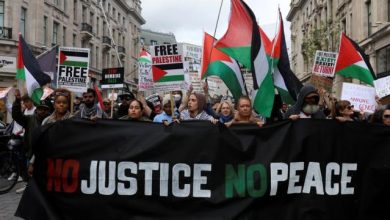Equality and Empowerment: A Religious Perspective on the Women’s Movement in Iran
Exploring the intersection of faith and feminism in the ongoing struggle for equality in Iran
The recent Women’s Movement in Iran has brought about important discussions and protests surrounding mandatory hijab and women’s rights in the country. As a society navigates this transition towards a new equilibrium, it is important to consider the perspectives and teachings of Islam on these issues.
The Qur’an, the holy scripture of Islam, consistently emphasizes the equality of all people, regardless of gender. In Surah An-Nisa, verse 134, it states: “For every one of you, We have appointed a law and a way. And if God had pleased He could have made you one people, but that He may try you in what He hath given you; so strive as in a race in good works.” This verse highlights the individual responsibility and agency of each person, rather than making distinctions based on gender.
In addition, the Prophet Muhammad is reported to have said: “The best among you are those who treat their wives well.” (Sunan Abu Dawud, Book 11, Number 2137). This hadith, or saying of the Prophet, emphasizes the importance of treating one’s spouse with kindness and respect, regardless of their gender.
Furthermore, the Qur’an specifically addresses the issue of dress and modesty, stating in Surah Al-Ahzab, verse 59: “O Prophet! Tell thy wives and daughters, and the believing women, that they should cast their outer garments over their persons (when abroad): that is most convenient, that they should be known (as such) and not molested.” This verse highlights the importance of modesty in dress, but also notes that it is for the purpose of being recognized as a believer and not harassed or mistreated. It does not prescribe a specific type of clothing or mandate that all women must cover their heads.
It is clear from these teachings that Islam promotes equality and agency for all people, regardless of gender. It also promotes modesty in dress, but leaves room for individual interpretation and choice. The Women’s Movement in Iran, therefore, can be seen as aligning with the values and principles of Islam.
As a society, it is important to have open and respectful discussions about these issues, drawing upon the teachings of Islam and considering the experiences and perspectives of all individuals. The Women’s Movement in Iran has already achieved significant progress in bringing about change and sparking important conversations. It is crucial to continue this work towards achieving equality and empowerment for all people.




